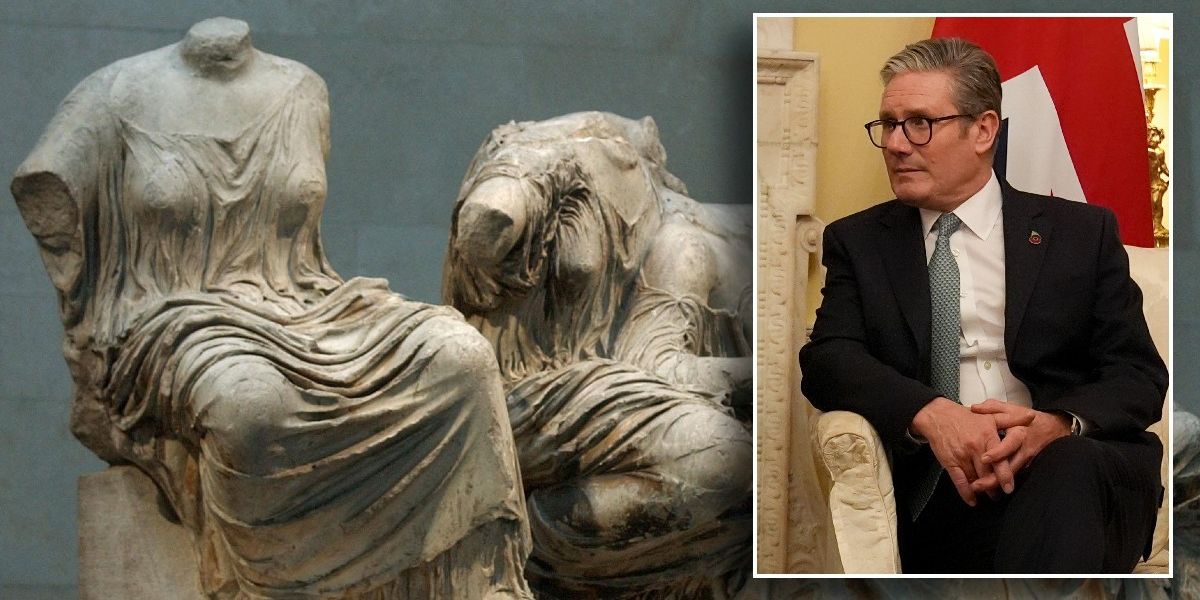The Elgin Marbles: A Step Closer to Repatriation?
The Elgin Marbles, a collection of classical Greek marble sculptures that once adorned the Parthenon, have long been a subject of contention between Greece and the United Kingdom. Recently, Nikolaos Stambolidis, the general director of the Acropolis Museum, expressed optimism about the potential return of these ancient artefacts to Greece within the next two to three years. This assertion has reignited discussions about the marbles’ rightful ownership and the broader implications of cultural heritage repatriation.
Growing International Support
In a recent interview with Greece’s public broadcaster ERT, Stambolidis highlighted a notable shift in international sentiment regarding the repatriation of the Elgin Marbles. He pointed to the decision made by UNESCO in September 2021, which emphasized the need for the reunification of the Parthenon Sculptures, as a pivotal moment in the ongoing debate. This decision has seemingly galvanized support from various nations, including unexpected allies like Turkey, who have joined Greece in advocating for the return of the marbles.
Stambolidis cited recent successful repatriations, such as the return of the Fagan fragment in 2022 and the Vatican’s repatriation of three sculpture pieces in 2023, as encouraging precedents. He described these instances as "tested and functioning models" that could pave the way for the return of artefacts that rightfully belong to Greece but have been removed from their original context.
A Global Demand for Reunification
The call for the reunification of the Parthenon Sculptures is not merely a nationalistic endeavor; it has evolved into a global demand. Stambolidis emphasized that this is not just a Greek request but a broader appeal for cultural justice. The sentiment resonates with many who believe that artefacts should be returned to their places of origin, where they can be appreciated in their historical and cultural context.
Despite this growing international support, the UK government has maintained a firm stance against changing the laws that govern the British Museum’s collection. A spokesperson for the Department for Culture reiterated that there are no plans to alter the legal framework that currently prohibits the permanent removal of the Parthenon Sculptures from the museum.
Political Dynamics and Diplomatic Tensions
The ongoing debate over the Elgin Marbles has led to heightened diplomatic tensions between Greece and the UK. Last year, a significant diplomatic incident arose when then-Prime Minister Rishi Sunak expressed his unwillingness to consider the return of the marbles. His spokesperson reiterated the UK government’s position, stating that the sculptures were legally acquired under the laws of the time and are thus legally owned by the British Museum’s trustees.
However, the political landscape may be shifting. Sir Keir Starmer, the leader of the UK Labour Party, has hinted at a potential change in approach regarding the marbles. Shadow Culture Secretary Lisa Nandy has expressed a willingness to engage in discussions with Greek counterparts to find a resolution to this long-standing dispute. This openness to dialogue marks a significant departure from the previous government’s rigid stance.
A Unique Moment in History
Former Labour MP Thangam Debbonaire emphasized the importance of finding a solution, noting that Greece is the birthplace of democracy and that the UK should celebrate this shared heritage. She described the current moment as "unique," suggesting that the British Museum has an opportunity to reshape the narrative surrounding the Elgin Marbles and acknowledge their rightful place in Athens.
The Acropolis Museum’s success in attracting visitors has further bolstered Greece’s case for repatriation. Visitor numbers surged from 1.5 million in 2022 to 1.95 million in 2023, demonstrating a growing interest in Greece’s cultural heritage and the significance of the Parthenon Sculptures.
Legal and Ethical Considerations
At the heart of the repatriation debate are legal and ethical arguments. Stambolidis pointed out that international law does not support the retention of artefacts that were acquired illegally, regardless of how much time has passed since their removal. This perspective aligns with a broader movement advocating for the return of cultural heritage items to their countries of origin.
As discussions continue, the future of the Elgin Marbles remains uncertain. However, the increasing international support for their repatriation, coupled with potential shifts in UK political attitudes, suggests that the marbles may soon find their way back to Greece, where they can be appreciated in their rightful historical context.
Conclusion
The Elgin Marbles represent more than just ancient artefacts; they embody a complex narrative of cultural heritage, national identity, and international diplomacy. As Greece pushes for their return, the world watches closely, eager to see how this long-standing dispute will unfold. With growing support for repatriation and a potential shift in UK political dynamics, the dream of reunifying the Parthenon Sculptures may be closer to reality than ever before.
